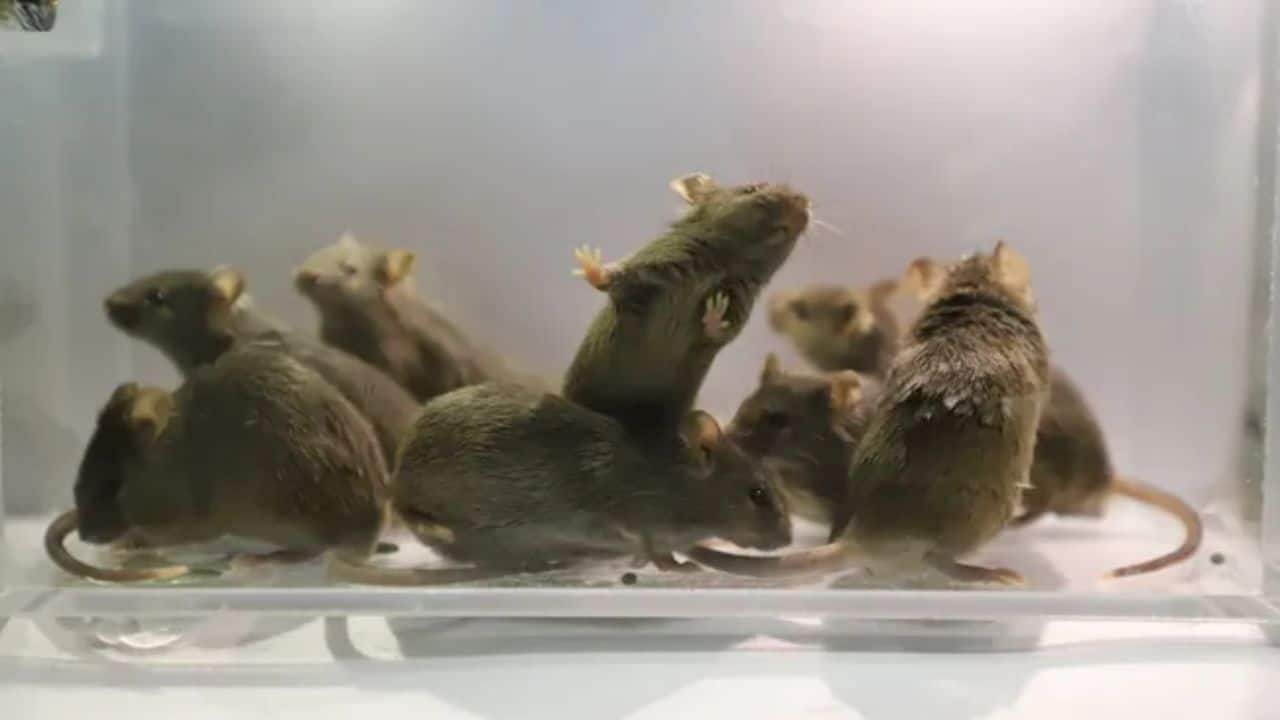



Scientists in China have achieved a remarkable breakthrough in genetics. They successfully bred baby mice using DNA from two male parents. Unlike previous attempts, these mice survived to adulthood, opening new possibilities in reproductive science. This research could deepen our understanding of gene activity and its role in development.
A Step Forward in Genetic Research
This study, published in Cell Stem Cell on 28 January, explores a unique approach. The team, led by Zhi-kun Li from the Chinese Academy of Sciences, focused on "imprinting genes." These genes inherit one copy from each parent but need only one to function. When these genes do not work properly, they cause disorders like Angelman syndrome.
 Here are some of the bipaternal mice from the experiment that survived to adulthood. (Image: Courtesy of Zhi-kun Li, et al.)
Here are some of the bipaternal mice from the experiment that survived to adulthood. (Image: Courtesy of Zhi-kun Li, et al.)
In a 2023 study, Japanese scientists used male mouse skin cells. They turned them into egg cells carrying two X chromosomes. These eggs were then fertilised with sperm, creating mice with only male DNA. However, the Chinese researchers followed a different path.
How Scientists Created Two-Father Mice
The team removed DNA from an immature female mouse egg. They then introduced sperm to create embryonic stem cells. These stem cells, combined with another sperm, formed a fertilised egg. To prevent genetic issues, they made 20 specific gene modifications.
Their previous study had made only seven genetic tweaks. Those mice survived pregnancy but died after birth with severe abnormalities. By increasing the modifications, they overcame developmental problems. With 18 changes, the mice needed feeding support but lived to adulthood. By adding two more changes, the mice developed more normally.
However, the mice still had shorter lifespans and were infertile. In contrast, Japanese researchers in 2023 bred male-parent mice that were fertile. The Chinese team now plans to refine their technique.
Future of Genetic Studies
Scientists believe this research could help treat imprinting disorders. It may also improve livestock breeding by selecting desirable traits. However, experts warn against using this method on humans soon.
Keith Latham from Michigan State University supports the research. He believes scientists could eventually develop drugs for imprinting disorders. Dr Kotaro Sasaki from the University of Pennsylvania agrees but highlights ethical and technical concerns.
The Chinese team now aims to test their method on other animals. They hope to find better ways to edit genes and improve success rates.
Discover the latest Business News, Sensex, and Nifty updates. Obtain Personal Finance insights, tax queries, and expert opinions on Moneycontrol or download the Moneycontrol App to stay updated!
Find the best of Al News in one place, specially curated for you every weekend.
Stay on top of the latest tech trends and biggest startup news.